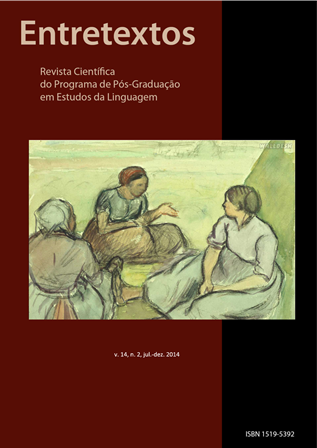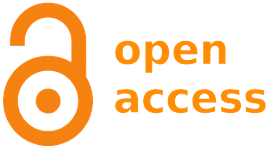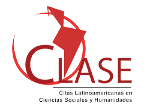Repensando a sala de aula a partir do letramento digital
DOI:
https://doi.org/10.5433/1519-5392.2014v14n2p7Palavras-chave:
Formação continuada, Letramento digital, Professor.Resumo
A presença da tecnologia na sala de aula é cada vez mais evidente, sendo, portanto, necessário repensarmos o processo de formação de professores (MORAN, 2007; VALENTE, 2003). Métodos tradicionais de ensino, que se utilizam unicamente da voz do professor, do quadro-negro, do giz e do livro didático, não atendem mais aos interesses e expectativas dos alunos. Isso porque estes discentes estão inseridos e conectados ao mundo virtual, o qual lhes oferece uma gama de possibilidades de comunicação e interação com pessoas do mundo todo. Portanto, repensar a prática docente, no atual contexto de ensino-aprendizagem, requer uma retomada de postura e engajamento por parte desses profissionais com o mundo virtual. Dessa forma, é necessário que os professores se tornem digitalmente letrados. Além de conhecer as inúmeras possibilidades existentes, esses docentes precisam saber utilizá-las pedagogicamente de modo eficiente, não apenas reproduzindo antigos modelos didático-pedagógicos. Todavia, para que esse profissional se sinta capaz de operacionalizar a máquina a seu favor, é necessário formação continuada. Assim, o objetivo deste estudo é apontar perspectivas teórico-práticas de instrumentalização docente, que irão contribuir para a formação do professor requerido pela sala de aula atual. Para tanto, serão considerados os dados de um grupo de professores atuantes em escolas públicas municipais da região sul do Rio Grande do Sul, Brasil.
Downloads
Referências
BECHARA, Evanildo. Moderna gramática portuguesa. Rio de Janeiro: Lucerna, 1999.
DEMO, Pedro. Educação hoje: “novas” tecnologias, pressões e oportunidades. São Paulo: Atlas, 2009.
FAIRCLOUGH, Norman. Discurso e mudança social. Tradução de Izabel Magalhães. Brasília: Editora Universidade de Brasília, 2001.
KENSKI, Vani Moreira. Educação e tecnologias: o novo ritmo da informação. Campinas, São Paulo: Papirus, 2007.
SOARES, Magda. Novas práticas de leitura e escrita: letramento na cibercultura. Educação e Sociedade, v. 23, n. 81, p. 143-162, Dez. 2002.
MASON, Robin; RENNIE, Frank. E-learning and social networking handbook: resources for higher education. London: Routledge, 2008.
MORAN, José Manuel. Como utilizar a Internet na escola. Ciência da Informação, Brasília, v. 26, n. 2, p. 146-153, Maio/Ago. 1997.
MORAN, José Manuel. A educação que desejamos: novos desafios e como chegar lá. Campinas, São Paulo: Papirus, 2009.
MORAN, José Manuel. Mudar a forma de ensinar e de aprender com tecnologias: transformar as aulas em pesquisa e comunicação presencial-virtual. In: MORAN, José Manuel; MASETTO, Marcos; BEHRENS, Marilda. Novas Tecnologias e Mediação Pedagógica. 17. ed. Campinas, São Paulo: Papirus, 2010.
REZENDE E FUSARI, Maria Felisminda de. Comunicação, meios de comunicação e formação de professores: questões de pesquisa. In. PORTO, T. M. E. (Org.) Saberes e linguagens de educação e comunicação. Pelotas: Editora Universitária, UFPel, 2001.
VALENTE, José Armando (Org). Formação de educadores para o uso da informática na escola. Campinas: Nied, 2003.
XAVIER, Antônio Carlos dos Santos. Letramento digital e ensino. Disponível em: http://www.ufpe.br/nehte/artigos/Letramento%20digital%20e%20ensino.pdf. Acesso em: 01 jul. 2011.
Downloads
Publicado
Como Citar
Edição
Seção
Licença
Entretextos adota a Licença Creative Commons Attribution 4.0 International, portanto, os direitos autorais relativos aos artigos publicados são do/s autor/es.
Sob essa licença é possível: Compartilhar - copiar e redistribuir o material em qualquer suporte ou formato. Adaptar - remixar, transformar, e criar a partir do material, atribuindo o devido crédito e prover um link para a licença e indicar se mudanças foram feitas.






















